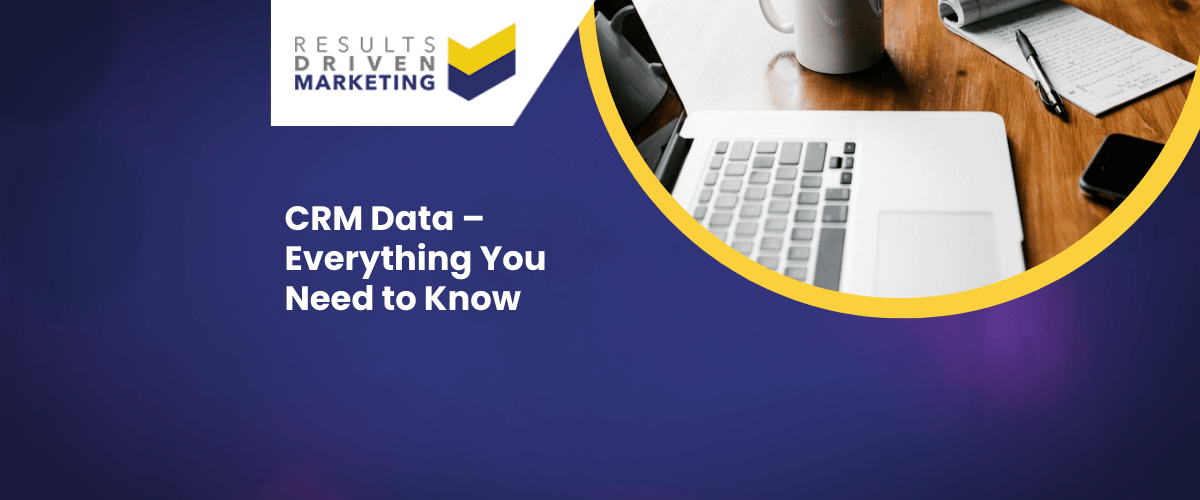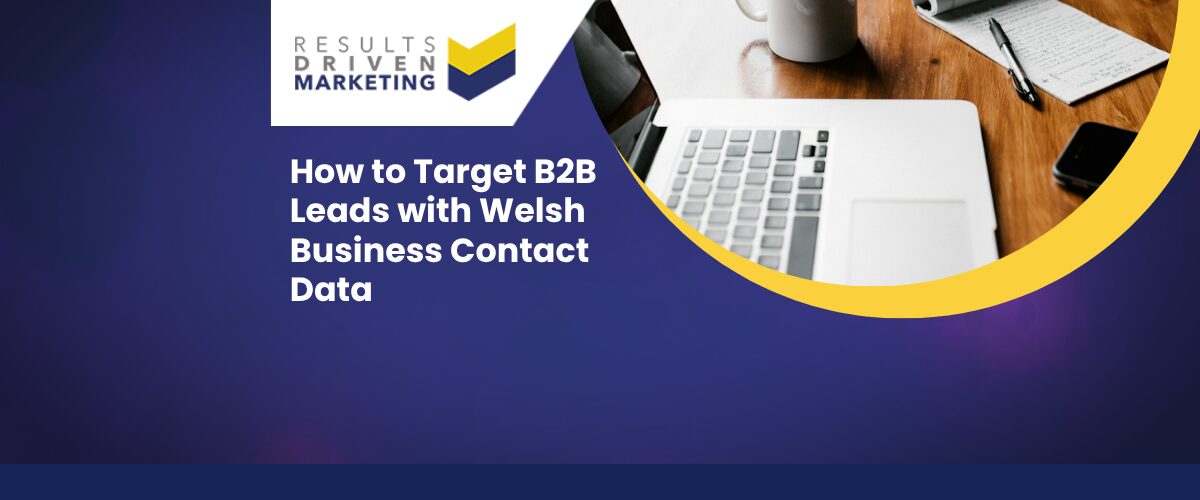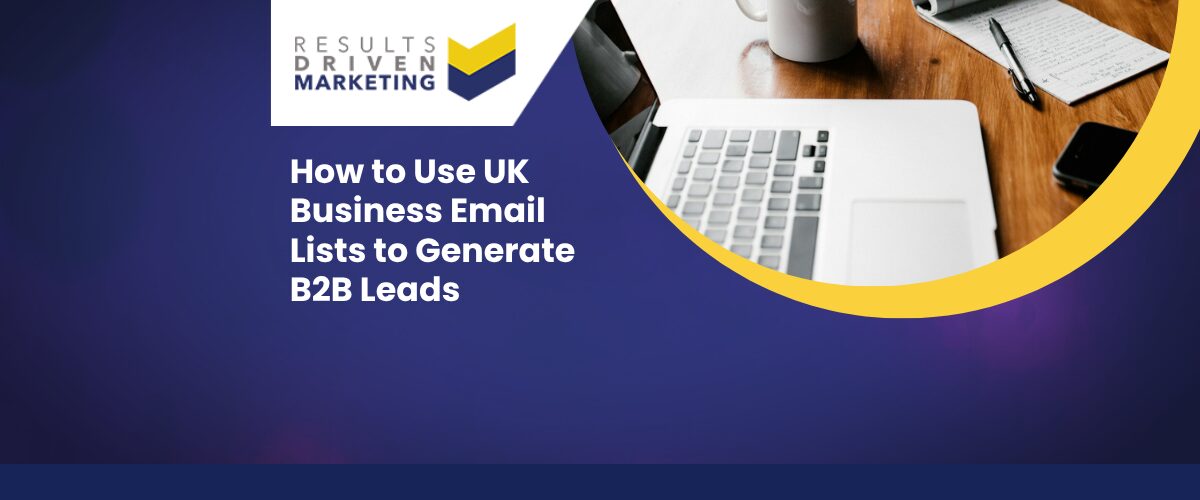
CRM Data – Everything you need to know
As businesses continue to expand, the need for accurate and up-to-date customer CRM data becomes more critical than ever.
CRM data, in particular, is one of the most important types of data that businesses can purchase.
This type of data includes all the information that businesses collect on their customers and prospects, such as contact information, demographics, purchasing history, and other relevant data.
By purchasing CRM data, businesses can enhance their marketing efforts, improve their customer experience, and increase their ROI.
In this expanded blog post, we’ll explore the benefits of purchasing CRM data in more detail and what businesses should consider when buying B2B data.
We’ll also discuss how to choose the right CRM data provider and how to use the data to drive better results.
What is CRM data?
Customer Relationship Management (CRM) data refers to the information businesses collect about their customers and prospects.
This data can include contact information, demographics, purchasing history, and other relevant information that can be used to segment and target customers.
CRM data is critical to effective marketing and sales campaigns, as it allows businesses to tailor their messaging to specific customer segments and improve the overall customer experience when using the CRM data.
Benefits of purchasing CRM data
Purchasing CRM data from a reputable provider has several benefits for businesses.
Here’s an in-depth look at some of the key advantages:
1. Time-saving
One of the primary benefits of purchasing CRM data is that it saves businesses time. Collecting and verifying customer data can be a time-consuming process that requires a significant amount of resources.
By purchasing CRM data, businesses can save time and focus on other critical aspects of their operations, such as product development and customer service.
This time-saving benefit can be especially beneficial for smaller businesses that have limited resources.
2. Accuracy
Reputable B2B data providers invest in advanced technology and resources to ensure the accuracy of their data.
This means that businesses can rely on the data they purchase to be up-to-date and relevant.
Having accurate data is essential for effective marketing and sales campaigns.
Outdated or irrelevant data can harm a business’s marketing efforts and waste valuable resources.
By purchasing accurate and relevant data, businesses can improve the effectiveness of their marketing campaigns and enhance the overall customer experience.
3. Targeted marketing
Another significant benefit of purchasing CRM data is that it allows businesses to segment their customers and prospects based on relevant criteria such as industry, company size, and job title.
This segmentation allows for targeted marketing efforts that are more likely to result in conversions.
By reaching the right audience with the right message, businesses can increase their chances of converting prospects into customers.
Targeted marketing can also help businesses improve their customer engagement and retention rates.
4. Improved ROI
With accurate and targeted data, businesses can improve the ROI of their marketing and sales campaigns.
By reaching the right audience with the right message, businesses can increase their chances of converting prospects into customers.
This increased conversion rate can lead to a higher ROI for marketing campaigns.
By using CRM data to target the right customers, businesses can also reduce their marketing costs and improve the overall efficiency of their marketing efforts.
Considerations when purchasing CRM data
When purchasing CRM data, businesses should keep several considerations in mind to ensure that they get the most out of their investment.
Here are some of the key considerations:
1. Reputable provider
It’s essential to purchase data from a reputable provider to ensure accuracy and relevance.
A reliable provider will invest in advanced technology and resources to ensure that their data is up-to-date and relevant.
When researching providers, it’s important to read reviews and look for providers with a track record of providing high-quality data.
2. Data quality
The quality of the data is essential for ensuring the effectiveness of marketing and sales campaigns.
Outdated or irrelevant data can harm a business’s marketing efforts and waste valuable resources. When purchasing CRM data, businesses should ensure that the data is up-to-date and relevant to their target audience.
This can be done by checking the age of the data and the sources of the data.
3. Compliance
Data privacy regulations such as GDPR govern the collection, use, and sharing of customer data.
When purchasing CRM data, it’s important to ensure that the provider complies with relevant data privacy laws and regulations.
Non-compliance can result in hefty fines and damage to a business’s brand reputation.
Businesses should ask potential providers about their compliance processes and certifications.
4. Cost
The cost of purchasing CRM data can vary significantly based on the quality and quantity of the data.
It’s essential to compare pricing from different providers to ensure that a business is getting a fair deal for the data they are purchasing.
However, it’s important not to sacrifice quality for cost savings. Cheaper data that is inaccurate or irrelevant can harm a business’s marketing efforts and waste resources.
Choosing the right CRM data provider
Choosing the right CRM data provider is essential for ensuring the accuracy and relevance of the data.
Here are some tips for selecting the right provider:
1. Check for certifications
A reputable data provider should have certifications such as GDPR to ensure that they are following relevant data privacy laws and regulations.
This is especially important for businesses operating in industries that handle sensitive data, such as healthcare or finance.
2. Look for relevant experience
Some data providers specialise in certain industries or niches.
When selecting a provider, businesses should look for experience in their industry or niche.
This can ensure that the provider has a deep understanding of the businesses’ target audience and can provide the most relevant data.
3. Ask about the data collection process
The data collection process can affect the accuracy and relevance of the data.
When selecting a provider, businesses should ask about their data collection process to ensure that it aligns with their needs.
For example, if a business needs real-time data, they should select a provider that can deliver that data quickly.
4. Check for customer support
Customer support is essential when purchasing CRM data.
Businesses should select a provider that offers excellent customer support to address any questions or concerns that arise.
Good customer support can also help businesses get the most out of their investment in CRM data.
Using CRM data to drive better results
Once a business has purchased CRM data, they need to know how to use it to drive better results. Here are some tips for using data effectively:
1. Segmentation
Data allows businesses to segment their customers and prospects based on relevant criteria such as industry, company size, and job title. By segmenting their audience, businesses can tailor their marketing efforts to specific groups, which can improve their conversion rates.
2. Personalisation
Personalisation is key to effective marketing campaigns. By using data to personalise their marketing messages, businesses can improve their customer engagement and retention rates. For example, businesses can use CRM data to create personalised email campaigns that address the customer’s specific needs and interests.
3. Sales forecasting
Data can also be used for sales forecasting. By analysing the data, businesses can identify trends and patterns that can help them predict future sales. This can help businesses allocate resources effectively and make informed decisions about product development and marketing efforts.
Integrating Email with Other Marketing Channels for a Cohesive Digital Strategy
In today’s digital landscape, businesses are continuously looking for ways to reach their target audience more effectively.
Email marketing remains a powerful tool, but integrating it with other marketing channels can amplify its impact and create a more cohesive digital strategy.
By leveraging the strengths of email marketing in conjunction with social media, content marketing, and other digital channels, businesses can engage their audience more effectively and drive better results.
In this part of the article, we will explore how to integrate email marketing with other marketing channels for a comprehensive and successful approach.
1. Combining Email Marketing and Social Media
Email and social media are both effective ways to reach your audience, but when combined, they can complement each other and amplify your marketing efforts. Here are some ways to integrate email marketing with social media:
– Encourage email subscribers to follow your social media accounts by including social icons in your email template and offering exclusive content or promotions for followers.
– Use social media to promote your email newsletter and grow your email list by offering incentives for users who sign up, such as a discount or free resource.
– Share email campaign content on social media platforms to increase its reach and visibility.
– Retarget email subscribers on social media with tailored ads based on their interests and behaviours.
2. Leveraging Content Marketing in Email Campaigns
Content marketing can significantly enhance the value of your email campaigns by providing subscribers with valuable and engaging information. To integrate content marketing with email, consider:
– Sharing blog posts, articles, or other relevant content from your website in your email newsletter to keep subscribers informed and engaged.
– Creating email-exclusive content, such as how-to guides or industry reports, to incentivise subscriptions and provide added value.
– Using email campaigns to promote upcoming webinars, events, or other content-related offerings.
3. Integrating Email with SEO and PPC
Search engine optimisation (SEO) and pay-per-click (PPC) advertising can also be integrated with email marketing to drive traffic and improve overall campaign performance. Some strategies include:
– Using email campaigns to promote targeted landing pages optimised for SEO and PPC.
– Incorporating targeted keywords into your email content to improve search engine visibility and relevance.
– Using PPC ads to promote email sign-ups and drive traffic to your email subscription landing page.
4. Connecting Email with Marketing Automation
Marketing automation can help streamline and optimise your email marketing efforts, ensuring timely and relevant communication with your subscribers. To integrate email marketing with marketing automation:
– Use marketing automation tools to segment your email list based on customer behaviours, interests, and demographics.
– Implement triggered email campaigns based on specific customer actions or milestones, such as cart abandonment or product purchase.
– Employ lead nurturing campaigns to guide prospects through the sales funnel using a series of targeted emails.
Conclusion
Purchasing CRM data is an investment that can pay off in significant ways for businesses. By selecting the right provider and ensuring the quality and relevance of the data, businesses can improve their marketing and sales efforts, increase their ROI, and enhance the overall customer experience. By using data to segment their audience, personalise their messaging, and forecast sales, businesses can get the most out of their investment in CRM data.





